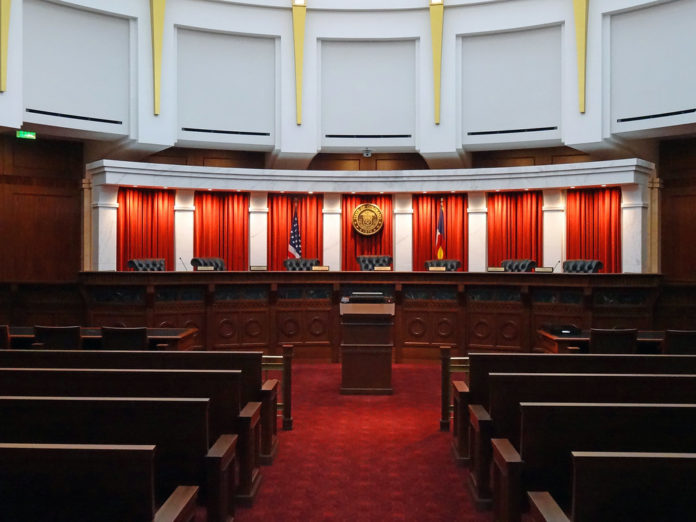

The Colorado Supreme Court will hear oral arguments in two cases on Tuesday. The first raises questions about whether a gas pipeline operator is a public utility that failed to obtain proper permits before building a project in Weld County. The second asks the court to decide how much interest an auto company should pay on a jury verdict following a prolonged appeals process.
Pipelines, Permits and Public Utilities
William Danks filed a complaint with Colorado’s Public Utilities Commission alleging that natural gas company DCP Operating Company is a public utility and should have — but failed to — obtain a certificate of public convenience and necessity before beginning construction on three pipeline projects in Weld County.
The PUC found Danks lacked standing. It also reviewed the facts and found DCP is not a public utility and didn’t need the certificate for its gas gathering facilities. Danks appealed to the Denver District Court, which concluded the PUC erred in finding Danks lacked standing because state utilities law allows anyone to file a complaint regarding a violation by a public utility. But the district court agreed DCP’s upstream gas gathering operations are not a public utility subject to the PUC’s jurisdiction because they do not supply gas to the public.
In his appeal to the Colorado Supreme Court, Danks argues one of the DCP pipeline projects — the Grand Parkway project — is a public utility because the company owns the pipeline and nearly all the gas transported through it. It operates to supply this gas to the public for domestic, mechanical or public uses, making it a public utility by definition under the law, according to Danks.
DCP denies admitting it is in the business of supplying gas to the public. The company maintains it doesn’t market or sell any of the raw and unprocessed gas in its gathering system. It must first be transported via truck or other pipelines before reaching the end user. DCP’s marketing affiliates sell the gas after it is processed and no end-use consumers are served directly from the gathering and processing network, according to the company.
The Colorado Supreme Court will consider whether DCP broke the law by failing to obtain the certificate before building the Grand Parkway project.
Judgment Interest Dispute
Forrest Walker was rear-ended at a stoplight while driving a Ford Explorer. He sued Ford, alleging the design of the driver’s seat contributed to his injuries. At trial, Walker’s expert witnesses testified that a stiffer seat would have better protected his head while Ford’s experts said a stiffer seat would have seriously injured his neck.
The jury found in Walker’s favor and awarded him more than $2.8 million in compensatory damages. Ford appealed, arguing that the trial court gave the jury erroneous instructions. The Colorado Court of Appeals reversed and remanded for a new trial with correct instructions.
The case was retried in 2019 — six years after the original verdict and almost 10 years after the crash. This time, the jury awarded Walker more than $2.9 million. Walker requested 9% prejudgment interest from the date of the crash. The district court agreed and added more than $3.6 million in prejudgment interest to Walker’s judgment.
Ford appealed, arguing the court must apply a market-based postjudgment interest rate when the judgment is appealed by the judgment debtor. According to the auto company, only a market-rate postjudgment interest rate would align with the legislature’s intent to eliminate financial incentives or disincentives to appeal. However, the Court of Appeals affirmed, concluding that the plain language of the judgment interest statute requires 9% prejudgment interest to be applied during the pendency of the appeal.
Walker argues the market-based postjudgment interest rate only applies when a judgment is affirmed. Following Ford’s appeal, the original trial court’s judgment ceased to exist, according to Walker, so the 9% prejudgment interest must be applied starting from the date of the injury.
The Colorado Supreme Court will hear arguments Tuesday to consider whether the Court of Appeals correctly applied the 9% prejudgment interest during the pendency of Ford’s successful appeal.

